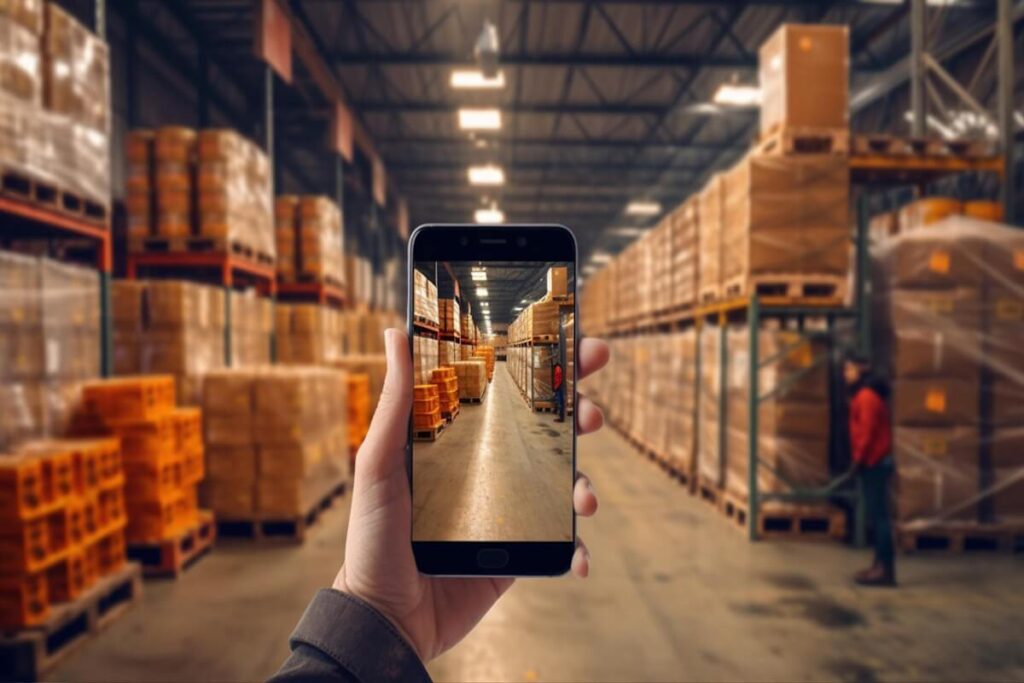Technology has revolutionized the logistics industry, enabling companies to streamline their operations and improve efficiency. One of the most significant advancements in this field is the development of custom mobile apps that can automate various logistics operations. These apps offer numerous benefits, including real-time tracking, inventory management, route optimization, and communication tools. In this article, we will explore how custom mobile apps are transforming the logistics industry and why companies should consider investing in this technology.
Real-Time Tracking
One of the key features of custom mobile apps for logistics is real-time tracking. With GPS technology, these apps can provide accurate location data for shipments, vehicles, and even individual items. This real-time visibility allows companies to monitor their assets at all times, identify potential delays or issues, and make informed decisions to optimize their operations. Some benefits of real-time tracking include:
- Improved asset visibility
- Enhanced decision-making capabilities
- Proactive issue identification and resolution
Custom mobile apps with real-time tracking functionality can significantly enhance a company’s logistics operations by providing up-to-date information on the movement of goods and assets.
Inventory Management
Another important aspect of logistics operations is inventory management. Custom mobile apps can help companies track their inventory in real-time, from the moment it enters their warehouse to when it is delivered to the customer. These apps can provide detailed information about each item, including its location, quantity, and status. This level of visibility and control can help companies reduce inventory holding costs, prevent stockouts, and improve overall supply chain efficiency. Some benefits of using custom mobile apps for inventory management include:
- Reduced stockouts and overstock situations
- Enhanced inventory accuracy
- Improved order fulfillment rates
By leveraging custom mobile apps for inventory management, companies can optimize their warehouse operations and ensure timely and accurate delivery of goods to customers.
Route Optimization
Efficient route planning is essential for logistics companies to minimize transportation costs and delivery times. Custom mobile apps can help companies optimize their routes by considering factors such as traffic conditions, weather forecasts, and delivery windows. By analyzing this data in real-time, these apps can suggest the most efficient routes for each shipment, helping companies save time and money. Some benefits of route optimization through custom mobile apps include:
- Reduced fuel consumption
- Minimized delivery times
- Enhanced customer satisfaction
By utilizing custom mobile apps for route optimization, companies can streamline their transportation operations and improve overall logistics efficiency.
Communication Tools
Effective communication is key to successful logistics operations. Custom mobile apps can provide communication tools that allow drivers, warehouse staff, and customers to stay connected throughout the delivery process. These apps can send automated notifications, updates, and alerts to keep all stakeholders informed and engaged. By facilitating communication, custom mobile apps can help companies improve customer satisfaction and streamline their operations. Some benefits of using communication tools in custom mobile apps include:
- Enhanced visibility and transparency
- Improved coordination among stakeholders
- Quick issue resolution
By integrating communication tools into custom mobile apps, companies can enhance collaboration and efficiency across their logistics operations.
Cost Savings
Investing in custom mobile apps for logistics can result in significant cost savings for companies. By automating various operations, such as tracking, inventory management, route optimization, and communication, companies can reduce labor costs, fuel expenses, and other overhead costs. Additionally, these apps can help companies minimize errors, delays, and inefficiencies that can lead to financial losses. Overall, the cost savings generated by custom mobile apps can have a positive impact on a company’s bottom line. Some ways in which custom mobile apps can lead to cost savings include:
- Reduced labor costs through automation
- Lower fuel expenses through optimized route planning
- Minimized error-related expenses
In conclusion, custom mobile apps are transforming logistics operations by offering real-time tracking, inventory management, route optimization, communication tools, and cost savings. Companies that invest in this technology can improve their efficiency, visibility, and customer satisfaction. As the logistics industry continues to evolve, custom mobile apps will play an increasingly important role in helping companies automate their operations and stay competitive in the market.
Ready to optimize your logistics operations with custom mobile apps? Contact us today to discover how our innovative solutions can elevate your business efficiency and customer satisfaction.
FAQs:
1. What are some key features of custom mobile apps for logistics?
Custom mobile apps for logistics offer real-time tracking, inventory management, route optimization, and communication tools to streamline operations and improve efficiency.
2. How can custom mobile apps help with inventory management?
Custom mobile apps can help companies track their inventory in real-time, providing detailed information about each item’s location, quantity, and status to reduce inventory holding costs and improve supply chain efficiency.
3. How do custom mobile apps assist with route optimization?
Custom mobile apps analyze factors such as traffic conditions and weather forecasts in real-time to suggest the most efficient routes for each shipment, helping logistics companies minimize transportation costs and delivery times.
4. What role do communication tools play in custom mobile apps for logistics?
Communication tools in custom mobile apps allow drivers, warehouse staff, and customers to stay connected throughout the delivery process by sending automated notifications, updates, and alerts to improve customer satisfaction and streamline operations.
